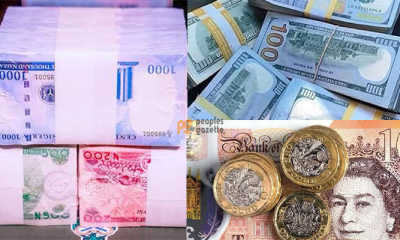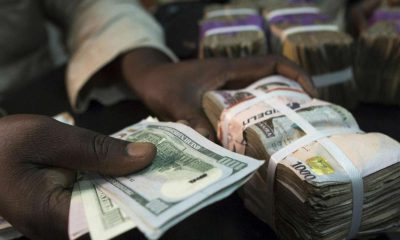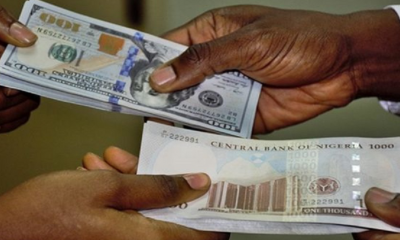ai
Naira weakened to 364 per dollar at the weekend from N363.50 the previous day as falling oil prices tightened liquidity on the currency market, traders said.
Pressure has been building on the naira as oil prices drop and foreign investors’ book profits on local bonds in response to falling yields.
“The (Naira) is reacting to external shocks while local (dollar) demand is increasing,” one trader said. “(Dollar) inflows have slowed, yields have tanked and oil prices are declining.”
The global oil price dropped to $58.69 per barrel on Friday while Nigerian oil suffered the slowest sales of the year in August, traders said, as U.S. exports of competing light, sweet grades flood traditional markets in Europe and Asia.
“The fall in the oil price could have been responsible for Wednesday’s (open market) treasury sale by the Central Bank of Nigeria (CBN). If the currency weakens further, CBN might intervene,” another trader said.
The apex bank held an unscheduled open market auction Wednesday, its first such sale since mid-July as it sought to lure foreign investors to boost dollar liquidity.
It sold the most-liquid one-year bill at 12 per cent owing to excess demand for the notes, lower than the 12.25 per cent it paid at its last auction in July and compared with as high as 18 per cent a year ago.
Nigeria operates a multiple exchange rate regime, which it has used to manage pressure on the currency. The official rate of 306.90 is supported by CBN but the traded rate of 364 is widely quoted by foreign investors and exporters.
Meanwhile, in order to increase the efficiency and security of the Nigerian clearing system, the CBN has reviewed the Nigerian Cheque Standards (NCS) and Nigeria Cheque Printers Accreditation Scheme (NICPAS).
According to the apex bank, this is to conform with international standard that cash and near money instruments should be reviewed after five to eight years.
In a series of tweets on Thursday, CBN explained the benefits of the review as follows:
“To further secure the cheque by addressing some of the observed fraud since the inception of version; to prepare us for future development in the payment system; graduating from T+1 to T+0 for cheque clearing; to reduce the TAT (Turn Around Time) of cheque processing at the banks by having minimal/no reject items that require manual intervention during scanning and to take advantage of latest innovation in cheque printing and security.”
The apex bank said that as from September 1, 2019, “all new orders of cheque book must conform to the new standard, while the new and old cheques shall run concurrently for 17 months from September 1,2019, after which the old standard would be phased out.”

 Football1 day ago
Football1 day ago
 Business1 week ago
Business1 week ago
 Business7 days ago
Business7 days ago
 Education1 week ago
Education1 week ago
 Crime1 week ago
Crime1 week ago
 Covid-191 week ago
Covid-191 week ago
 Business1 week ago
Business1 week ago
 Latest5 days ago
Latest5 days ago











